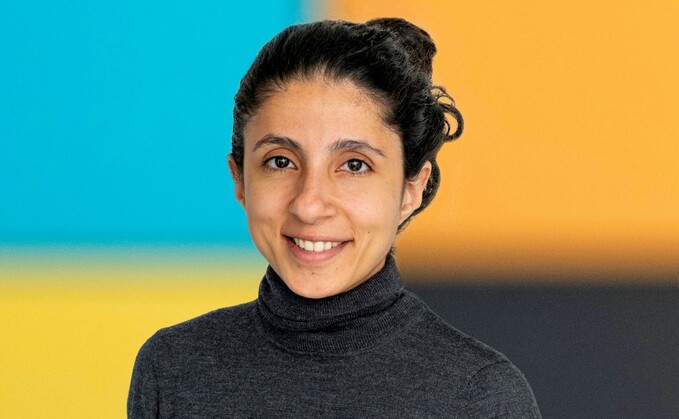
Later life advisers wear many hats, Ayesha Venkataraman finds. These including friend, confidante, wise counsellor, and even family mediator.
Many advisers have personal stories to share, along with strategies for dealing with difficult situations like the loss of a client who may have become a dear friend along the way.
Bluebell Financial Management owner and Chartered financial planner Carolyn Matravers tells Professional Adviser: "Very often, I am the first or second person that the family calls because I'm in place as a trusted adviser, I've met the family, and the family have met me."
She adds: "It's a very privileged position. But what is so important to me is that I have those relationships, not just with the clients, but with the family, so that when something does happen it's not a question of ‘who is this faceless firm'?"
Matravers says: "You're a key cog, if you like, and so even if solicitors are appointed as executors, remaining that key cog is important because it's very unusual that families have a relationship with a solicitor."
Old Mill Chartered financial planner and accredited member of the Society of Later Life Advisers (SOLLA) Andy Page says: "I always want to attend the funeral to pay my respects really, because these are people that you have a pretty privileged relationship with.
"Clients generally share a lot of information with advisers that they do not with their own families. If I'm doing my job right, they're talking about their hopes and dreams and fears for the future. Sometimes they have not even discussed this with each other, let alone with other family members."
WBW Chartered Financial Planners director and Chartered financial planner Dave Robinson says: "I do think that families, and particularly widows, might want you to sort of maintain a bit of professional detachment.
"You have got to be sympathetic, you have got to be kind, you have got to be understanding. I think what they want is someone who is going to say, ‘okay, I'm in control here', so you have nothing to worry about."
Matravers recalls losing a close client, whose daughters had engaged with her as a planner and a source of connection to their mother after her passing.
"Actually the first daughter said after the initial meeting, ‘I just looked at the relationship you have with mum and I wanted to have that relationship,' which was which was wonderful."
When the client passed away, "the girls were talking to me as a friend," said Matravers. They asked her questions like ‘what did mum say?' and ‘what were her favourite flowers'?"
She says: "When you have dealt with someone for so long, what you can provide is a sense of reassurance and all I could simply say to them was ‘mum knew that you would choose the right thing.' Actually, that was a peace of mind that they felt that that I knew their mum, and that actually it was going to be okay."
She adds: "You don't realise, as an adviser, how significant you are in their lives. I saw one of the daughters last week who said ‘please keep in touch, you are our link to our mum'."
The job involves really knowing the wider family, says Page.
"It's about knowing the wider family and dealing with the children. Those conversations are inevitably about the darker side of life, if we know that there's an ailing parent and that's going to get worse and that the end is coming, you have to be a bit more upfront about that stuff, making arrangements and planning around that, so you do get to talk to the children on quite a deep level."
Mediator
Most advisers say they are thrown into situations that require family mediation.
"When someone dies, and there is money involved, it really opens a Pandora's Box," says Matravers. "So it's all about trying to help navigate this, because for me what is always at the heart is the client who I knew."
Robinson explains this role goes with the territory.
"I've certainly said to families, ‘look, stop, just sort yourselves out and grow up. Think about your mum'. I have shopped three different sets of family members to the Office of the Public Guardian for behaving in a way that just was not acceptable."
He adds: "I've got a little process I go through with family members. I will encourage family members to come with me to meetings and all that kind of stuff. And I make it quite clear that to them that it is your mum that is instructing me and my job is to do the best job for your mum."
Page says that quite often he will have a "family conference" to help a family discuss "difficult stuff in an open and honest way".
"That goes back to the kind of planning we do for people where we say ‘look, if you are giving money to one child, make sure that that there is an open discussion with your other children so they know what you are doing, why you are doing it and how it impacts on them and whether they can get more money in the future'."
Ducks in a row
Many advisers stress the importance of getting their clients' finances in order as soon as possible, as death is often unpredictable.
Matravers says: "It's all about getting your ducks in a row, having the conversations early, making sure that some practical steps have been covered. And for me it's more about doing my job properly prior to anything happening and then being able to help the family and support them as much as they need me."
"It's really making sure the clients and their families are fully informed so that they can make the right decisions and they don't feel cut adrift. And that's what can happen when someone dies."
When it comes to couples, Robinson says: "One of the big things we are pretty hot on is making sure that both spouses, when they get to a certain point in life, have access to bank accounts in their own name."
"That sort of stuff is partly to do with protecting capital against care fees. We are always mindful of whether there are going to be expenses at the end of the day, and we really do not want any hassle with people being able to access money to pay for things like funeral expenses."
He adds: "I think that process starts before death, because you want to make sure that everything is in good order before it actually happens."













